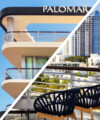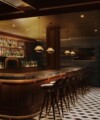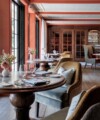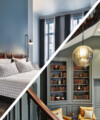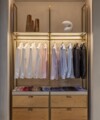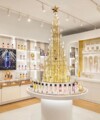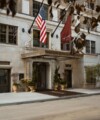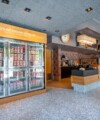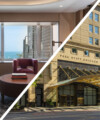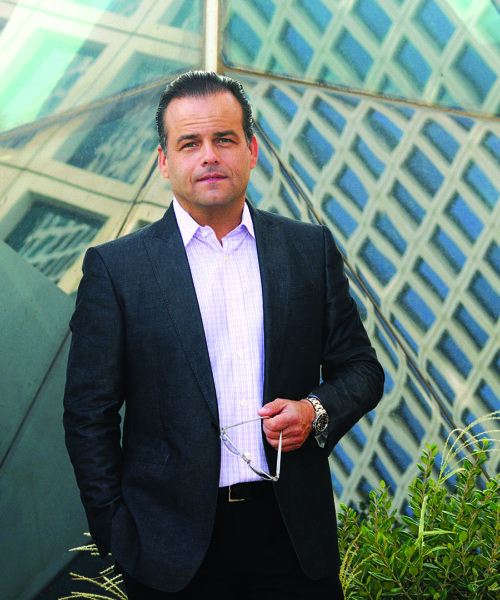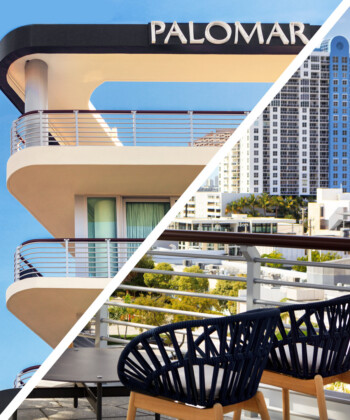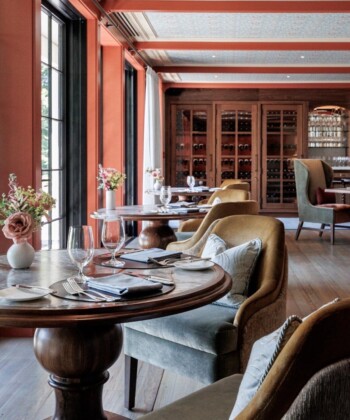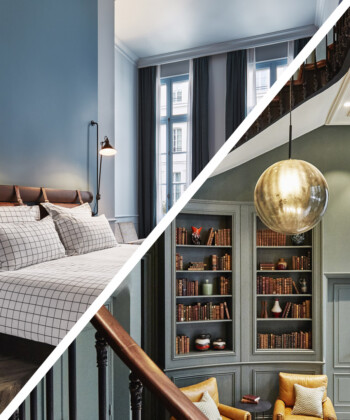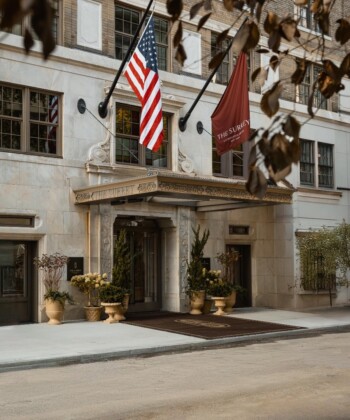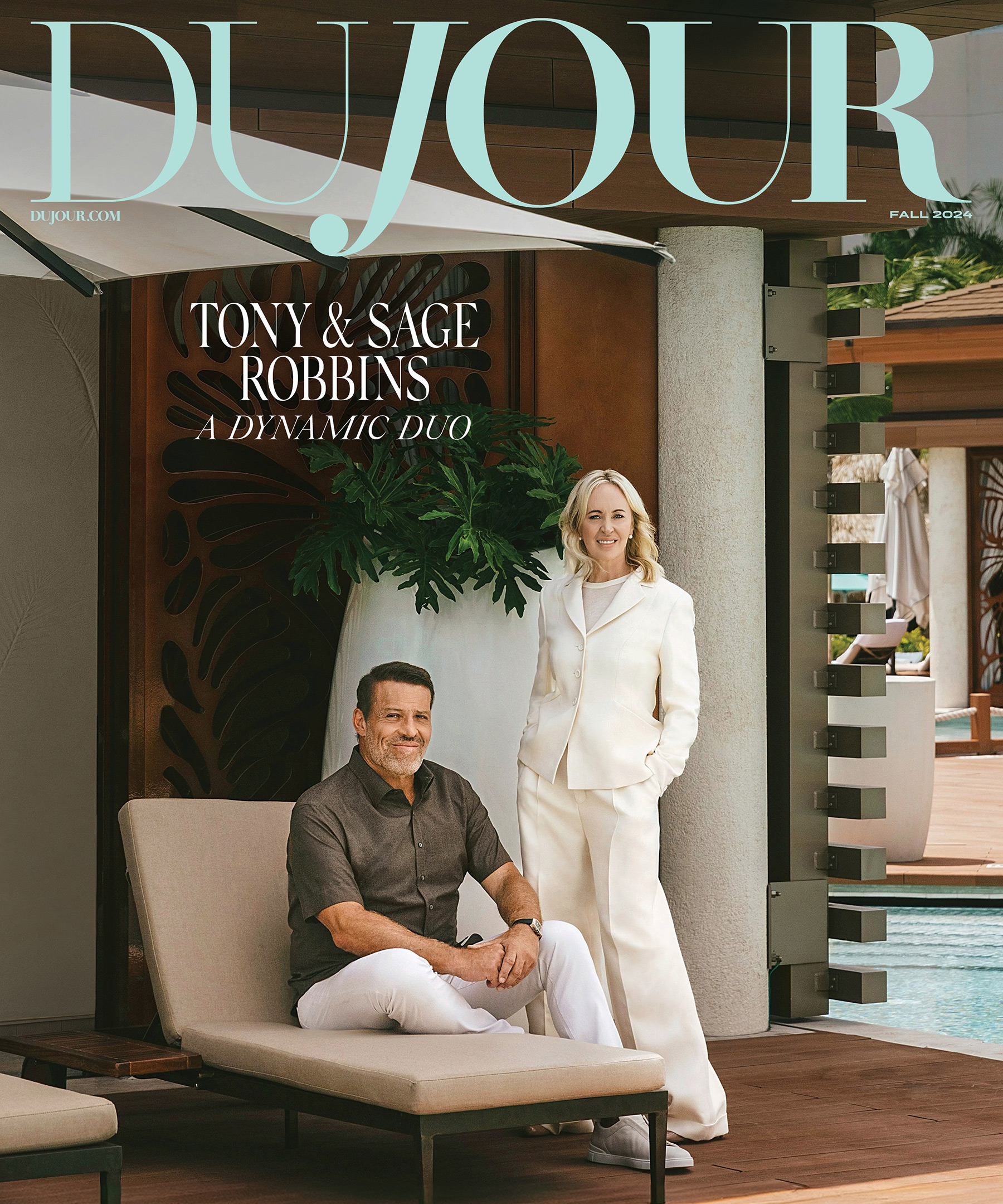Kobi Karp is an architect of many talents. He speaks just as lovingly about the slender, delicate Art Deco finial of Collins Park’s sweetly chic, millennial pink–garnished boutique hotel The Plymouth, which he recently restored to its original 1940s glory, as he does of working on French architect Jean Nouvel’s hypermodern 14-story glass-walled waterfront Monad Terrace residences, with its Babylonian hanging gardens, slated to open this spring.
After an early childhood spent running through orange groves in agrarian Israel; an adolescence and college career in frigid, snowy Minneapolis; and, now, more than two decades under his belt in sunny Miami, nature is close to Karp’s heart—and his work.
“What was very special about The Plymouth is that it has a terrazzo-finish veranda that wraps around the corner,” he muses. “So during the day, it allows people to sit nicely outside and have a cocktail and see the Bass Museum being lit up by the natural tropical sunlight. It has a very strong stone facade—coral stone—which comes to a golden glow in the afternoon.”

A rendering of Monad Terrace residences
And the cutting-edge Monad? “It’s an opportunity to build a glass building facing one of the best views that we have here, which is the sunset over the skyline of downtown Miami,” Karp says. The structure was designed to meet category-five hurricane impact regulations and the new wave and base flood elevations projected due to global warming.
Capturing the romance of the Miami sunset and nailing historical preservation as well as sleek, destruction-proof towers is a feat that Karp’s firm is uniquely qualified to pull off. After all, Karp is a man who, years ago, while working on Miami’s Seacoast Towers, sought out the legendary (and then near-forgotten) Morris Lapidus, architect of midcentury “Miami Modern” hotels including the iconic Fontainebleau, and brought him back into the fold of the American Institute of Architects. On the flip side, Karp is known for his glossy overseas structures and his role in building the Capri South Beach high-rise condos, a project he describes as a prelude to the Monad.
Karp’s arguably most important current project is an extensive revitalization of the once-neglected Collins Park neighborhood, which encompasses The Plymouth, the Miami City Ballet, and the aforementioned Bass Museum, housed in a striking 1930s Art Deco building. One of his imminent undertakings is the Collins Park Hotel, which will join four historic buildings, with an emphasis on indoor-outdoor living, including tropical gardens, pools, and rooftop lounges.
“Historic preservation is what tells us where we’ve been,” Karp says. “So many of these buildings were built in the middle of the industrial age, or during the Deco Streamline or Bauhaus, where less was more. We come along almost 100 years later, and we have an opportunity to create a building of our time, and at the same time, restore and preserve the original historic structure—and recycle it.”


